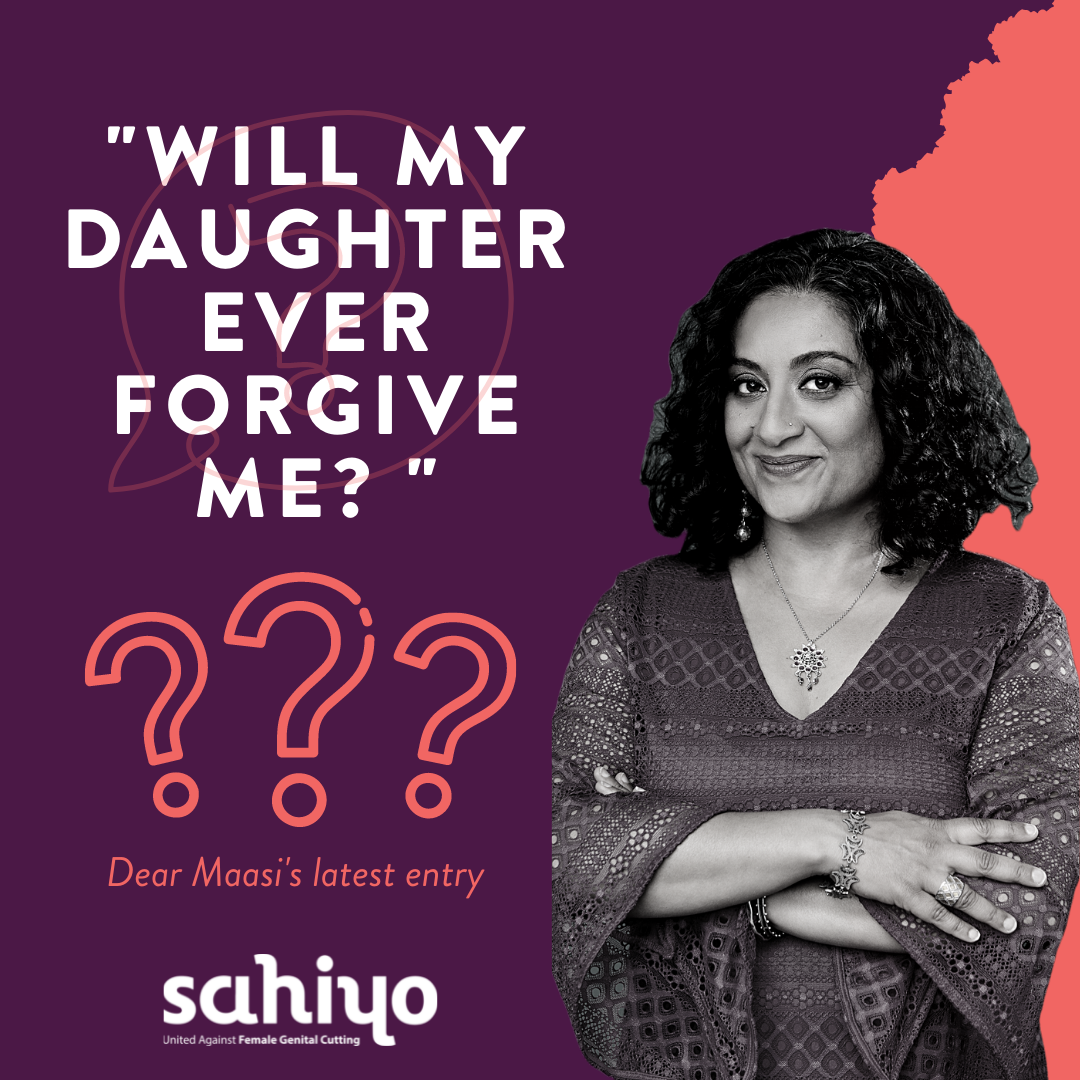Dear Maasi is a column about everything you wanted to know about sex and relationships but were afraid to ask! It’s a partnership between Sahiyo and WeSpeakOut, and is for all of us who have questions about khatna (FGM/C) and how it impacts our bodies, minds, sexualities and relationships. We welcome you to submit your anonymous questions.
Dear Maasi,
My daughter recently read an article about khatna and raised the conversation with me. I am against the practice now, but back then, I didn’t realize how harmful it could be and I am ashamed that I allowed elder relatives to pressure me into getting it done to her. My daughter is angry with me, and I’ve tried to explain things to her, but I don’t think it helped. How can we bridge the gap that’s between us now? Will she ever forgive me?
--Nafeesa
Dear Nafeesa,
Thanks for this heartfelt question. I imagine, with the recent increase in awareness about FGM/C, that more of these kinds of discussions are happening amongst family members. And I bet many of them feel complicated.
It’s common for those who have undergone FGM/C to experience a range of emotions when they first come to terms with the reality of it all. It’s also normal to feel anger, betrayal, sadness, grief, and confusion. You didn’t disclose this in your question, but I’m guessing that because FGM/C is an intergenerational trauma, that you, too, have undergone it? If so, you might be grappling with some of these feelings yourself.
Everyone is different, but here’s what I would have liked to hear from the elder relatives in my family who were responsible:
-An acknowledgement of the harmful nature of the practice
-A true apology for causing this harm
-A commitment to never do it again, and a commitment to talking to others in the family to correct misinformation and to prevent it from happening to others
-After hearing the above, I’d be open to hearing explanations, as long as these are not excuses to minimize their culpability
How about you, Nafeesa? What might you have liked to hear from your elders? You, too, deserve an acknowledgement, an apology and a commitment to do better.
In terms of how to talk with your daughter, I suggest the following steps:
-Ask her if she would be willing to set a time to talk with you. This ensures her consent, and also helps you both to prepare for a calm conversation.
-If she declines, respect her wishes and invite her to come to you in the future if she would like to continue the conversation.
-You can also ask if she’d like to talk in the presence of a mutual loved one, or a family counsellor who can help you to slow down the conversation and help you hear one another.
-If she agrees, ask her if she would be willing to listen to your apology and then offer it (see steps in the above section). Avoid getting defensive as you listen to her reactions.
A question for you, Nafeesa: have you forgiven yourself? If not, consider that few of us were talking openly about khatna until this last decade, and there wasn’t much information available about its harms. Most people who continue the practice do it because they feel they are doing what is religiously correct, and given a lack of substantive sex education, most don’t understand the myths (for example, the myth that cutting the clitoral hood is harmless and makes girls sexually “pure”).
Perhaps you deserve to forgive yourself now that you know differently.
Nafeesa, you are not alone, and I hope that you’ll be able to build understanding with your daughter in time.
Healing from the harm of khatna is our birthright!
---Maasi
About Maasi, aka Farzana Doctor:
Farzana is a novelist and psychotherapist in private practice. She’s a founding member of WeSpeakOut and the End FGM/C Canada Network. She loves talking about relationships and sexuality! Find out more about her at www.farzanadoctor.com
Disclaimer:
While Farzana is full of good advice, this column won’t address everyone’s individual concerns and should not be used as a substitute for professional medical or psychological care.

